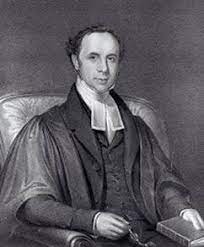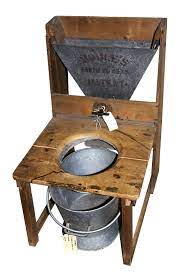
In 1860, Rev. Henry Moule (1801-1880), the great-grandson of Ann Blackett patented the dry earth closet. Following the cholera epidemics of 1849 and 1854, and particularly after the “Great Stink” during the unusually hot summer of 1858, when the smell in London from overflowing cesspits became so bad that it affected the work of the House of Commons, he filled in his own cesspool and instructed his family to use buckets, burying the contents in the garden of his Dorset vicarage. Finding that no trace of the sewage remained after a short time, he erected a shed and each day mixed dry earth with the contents of the bucket, discovering in the process that the contents made excellent fertiliser.

He believed that his discovery could play a major part in reducing the spread of disease and developed a type of commode employing the dry earth principle, and established the Moule Patent Earth Closet Co. Ltd. in the 1870s. For much of the rest of the 19th century his dry earth closet was a major competitor of the water closet (“WC”), but by the end of the century the WC had become the normal standard. Ironically, in recent years composting toilets have grown in use, being considered more eco-friendly than a water-flush system.
Henry Moule had a number of children who achieved eminence in the church and in academia. His sons, Henry Joseph and Horatio Mosley Moule, were close friends of the author Thomas Hardy, and his youngest son, Handley Carr Glyn Moule, was Bishop of Durham from 1901 to 1920.
He was also the uncle of Elizabeth Matilda Moule "Bessie" Evans, the daughter-in-law of the Victorian author Charles Dickens, as shown in Blacketts and Literature.
